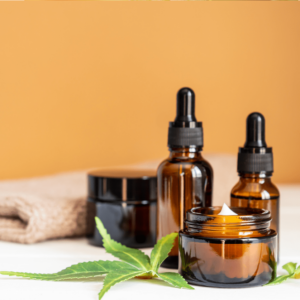Hello,
Cannabis helps thousands of people deal with neuropathic pain. In fact, in New York — which has only approved medical cannabis for a very limited number of conditions — 41% of medical cannabis patients are being treated for neuropathic pain (by far the most commonly treated condition).
https://neuropathyjournal.org/cannabis-use-neuropathic-pain-part-1-of-3/
Unfortunately, however, the research regarding isolated CBD and neuropathic pain is sparse. Although, in a study published in the British Journal of Pharmacology, researchers found that chronic administration of CBD prevents paclitaxel-induced neuropathy (PAC) (paclitaxel is a common chemotherapy agent which often causes neuropathic pain). Interestingly, they found that the cannabinoid receptors CB1 and CB2 were not involved in preventing the pain from developing. Rather, they concluded that CBD is protective against PAC-induced neurotoxicity mediated in part by the serotonin receptor system; modulation of the serotonin receptor system is also the method that antidepressant drugs are thought to affect neuropathic pain.
https://www.ncbi.nlm.nih.gov/pubmed/24117398
drkim
However, there is a significant amount of research showing that Sativex — an oromucosal spray with 1CBD:1THC — effectively reduces neuropathic pain. In 2005, Sativex was approved in Canada for the treatment of central neuropathic pain in multiple sclerosis, and in 2007 for intractable cancer pain. Numerous randomized clinical trials have demonstrated safety and efficacy for Sativex in central and peripheral neuropathic pain, rheumatoid arthritis and cancer pain.
https://www.ncbi.nlm.nih.gov/pmc/articles/PMC2503660/
While there is no best cbd oil product, there is probably a best ratio of CBD:THC to suit your goals. Products with higher concentrations of CBD vs THC, such as 15CBD:1THC, will lessen, or even eliminate, psychoactive effects. However, products with similar levels of CBD and THC have been shown to alleviate pain most. So, for most people, it takes some trial and error before finding an ideal compromise. Dosages will vary according to the patient’s goals, pain level, tolerance, current medications, the CBD to THC ratio and other factors. Accordingly, I recommend that you consult with a qualified physician.
drkim
It’s worth noting that no lethal dose of CBD has been identified, no dose known to cause adverse effects or organ toxicity in humans has been identified, and no dose of CBD has been identified as the minimal or maximal amount to take for any medical condition. As Dr. Kim notes, it is very much trial and error as to how much to take, and other medications that are being taken may be an important factor in figuring it out. If undertaking a program involving escalating doses of CBD it would definitely be a good idea to be under the active care a physician who would be on the lookout for the development of any problems.
drelkind





